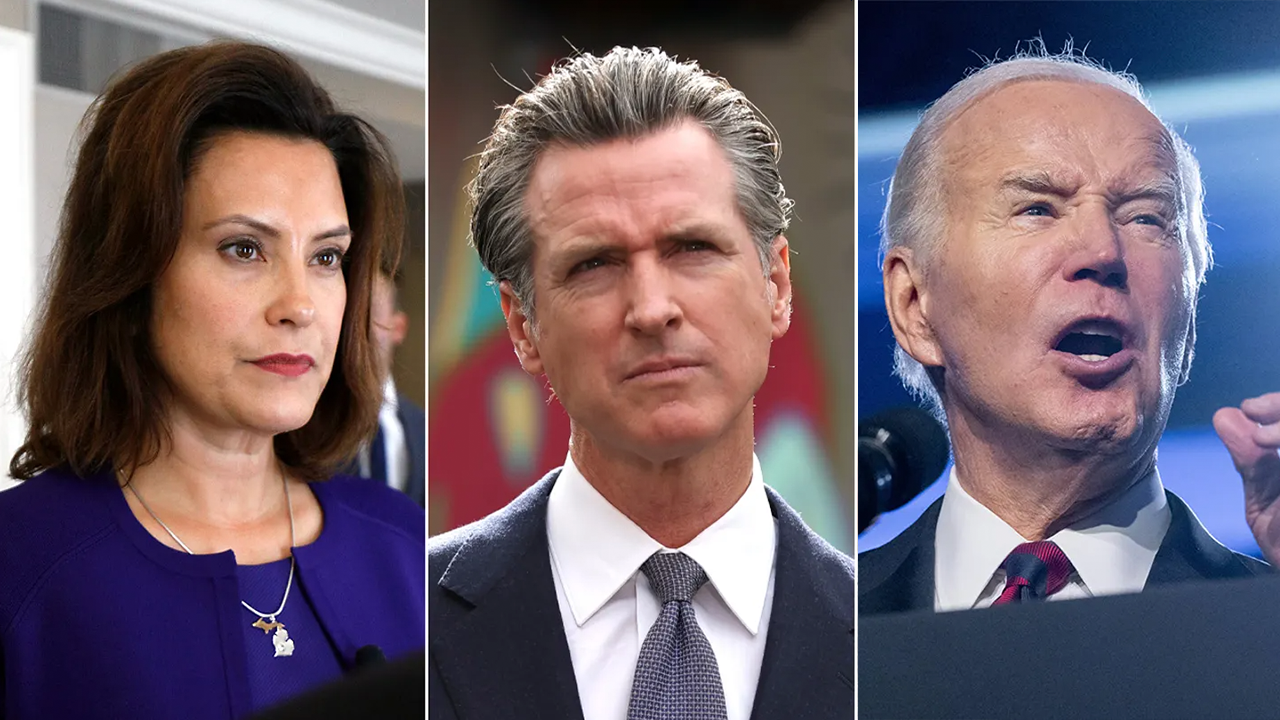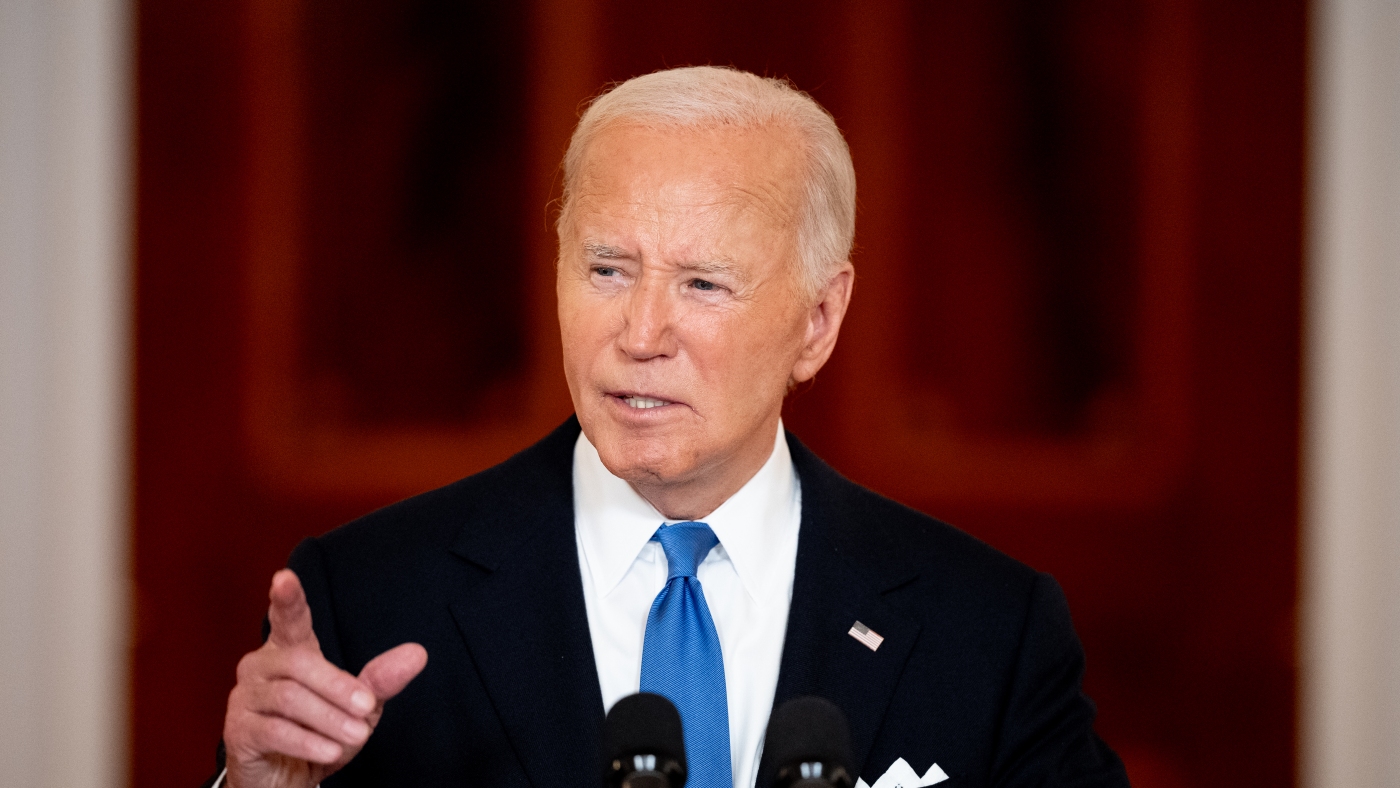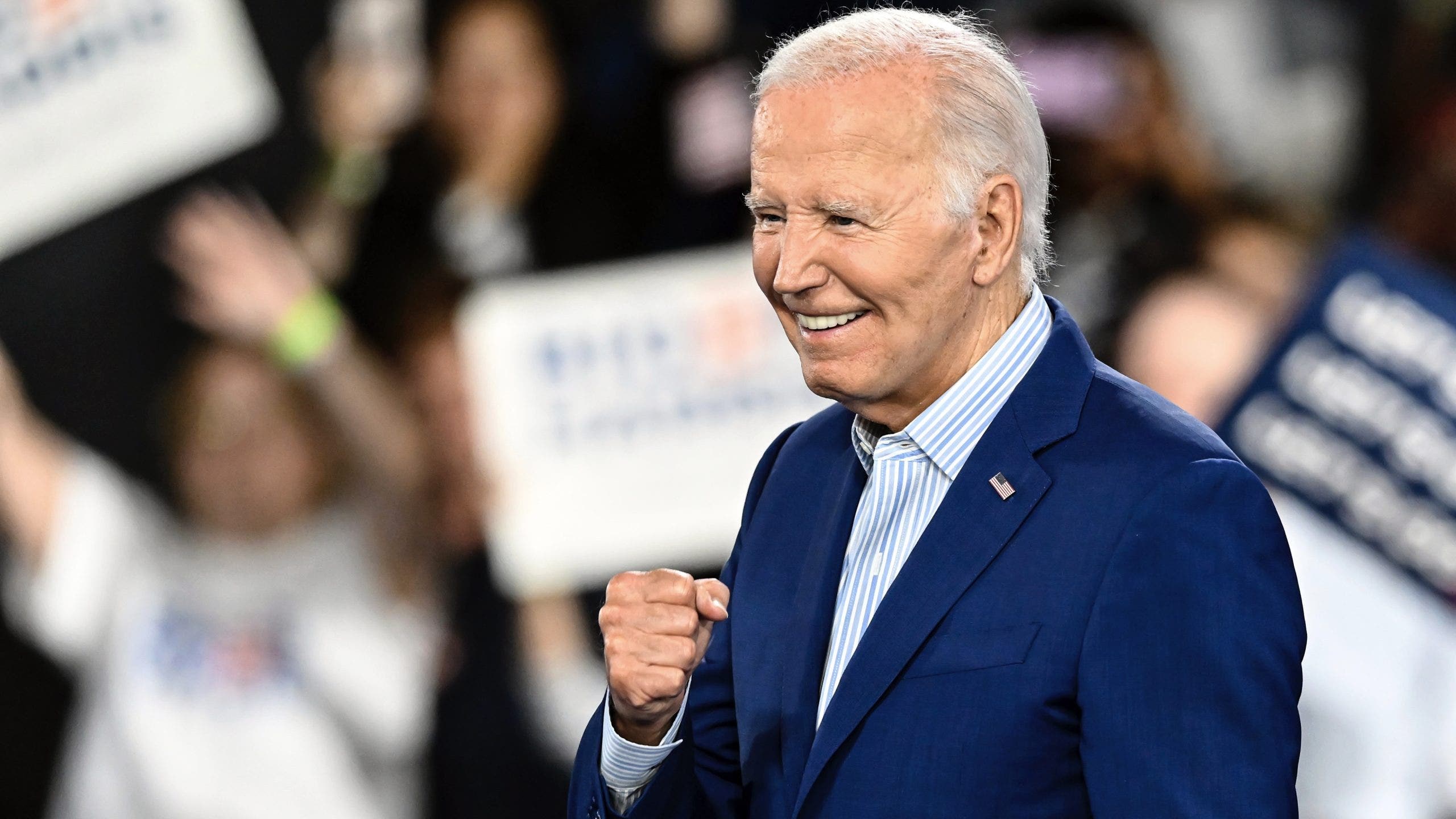World
Spain failed to reopen ‘genuine access to asylum’ at enclaves: NGOs
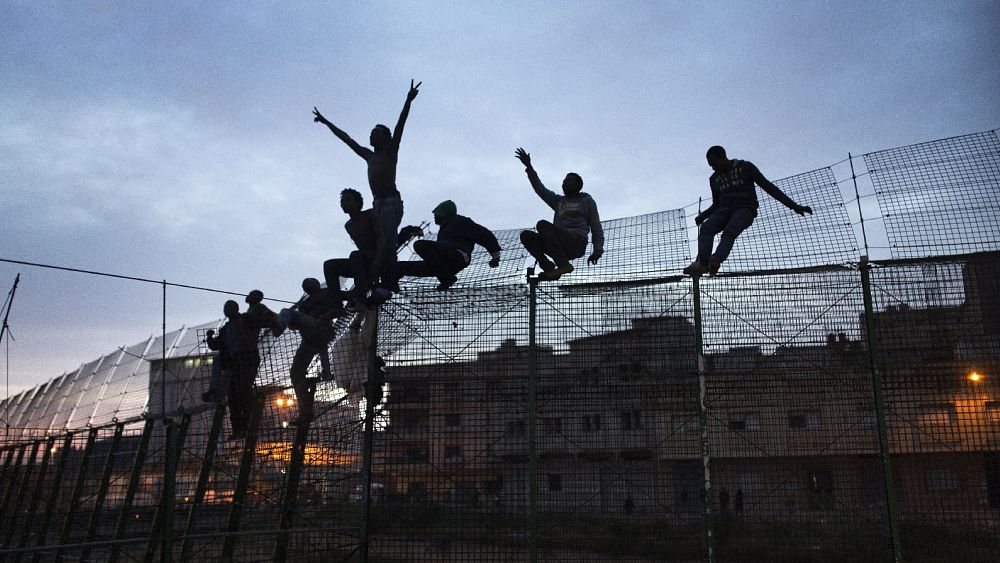
Three decades of migration deals between Spain and Morocco have led to fortified and almost impenetrable borders for asylum seekers.
Spain has failed to reopen safe and legal routes for people seeking asylum in its North African enclaves of Ceuta and Melilla since the COVID-19 pandemic, NGOs told Euronews.
Migrant rights NGOs have accused Spanish authorities of carrying out an “unlawful” and “discriminatory” policy of pushbacks and expulsions against “Black” asylum seekers of Sub-Saharan origin at the EU’s external borders of Ceuta and Melilla in Northern Morocco since the declaration of a state of emergency in March 2020.
“Spanish authorities have shut the border without giving any sort of asylum access,” Mar Soriano, legal adviser for the Melilla-based Solidary Wheels NGO, told Euronews. “It was already limited for Black people who face disproportionate discrimination from Moroccan border guards who won’t let them access the border.”
Soriano’s NGO has, alongside the International Organization for Migration (IOM), the UN Refugee Agency (UNHCR), Human Rights Watch and Amnesty International, repeatedly urged Spanish and Moroccan authorities to restore “genuine” and “effective” access to asylum through “safer” and “alternative” pathways to reduce the use of dangerous journeys and the risk of tragic events from occurring.
But these calls have fallen on deaf ears, according to the latest report from the Council of Europe’s Commissioner for Human Rights.
“A combination of several elements in Spain’s current approach to migration at its borders with Morocco has led to a situation where no genuine and effective access to safe and legal means of entry and asylum exists,” Dunja Mijatović concluded last April.
The Commissioner and her predecessor had already raised concerns in 2015, 2018 and 2022 about pushbacks carried out by Moroccan and Spanish border guards to “keep [asylum seekers] away from” the borders of Ceuta and Melilla.
“This leaves certain groups of asylum seekers with no other effective option to enter the borders to seek protection with the relevant authorities other than by swimming or jumping the fence, risking one’s life,” the Commissioner added.
Ceuta and Melilla’s ‘special regime’ and Covid-era ban
Spain’s Ceuta and Melilla enclaves have been the scenes of many pushbacks and violent police responses since 2014.
In early February 2014, at least 15 Sub-Saharan refugees and asylum seekers trying to swim around a seawall dividing Ceuta and Morocco drowned off the coast of Ceuta after local police opened fire with large rubber bullets in a “tragic” case that remains unprobed, according to Amnesty International.
Later that same month, more than 200 people successfully reached Spanish territory after storming the massive barrier fence that separates Ceuta from Morocco.
In August of the same year, a group of 23 people was summarily expelled to Morocco “without a chance to apply for asylum” or to “appeal the expulsion” after climbing over Melilla’s border fence, Amnesty International reported.
Pushbacks, expulsions and illegal crossings gradually grew in numbers every year until the summer of 2021 when the rate of migrant crossings in Ceuta and Melilla reached an all-time high at the height of a diplomatic row between the Moroccan monarchy and the Spanish government.
In retaliation, Moroccan security troops loosened border checks, allowing the passage of more than 8,000 migrants from Morocco to the Spanish cities, most of whom made the journey by swimming. At least half of them were “immediately expelled” in pushbacks in line with Spain’s migration deals with Morocco.
The drive in pushbacks in Ceuta and Melilla in the 2010s was propelled by amendments to Spain’s Aliens Act in 2015 which granted the enclaves a “special regime”, allowing border guards to effectively push back non-nationals trying to irregularly cross border controls in the name of “public safety”, said Soriano.
“Asylum processing is deliberately opaque and secretive to complicate judicial cases. It also means there are no official data on pushbacks publicly available,” she told Euronews.
The issue has been compounded by Spain and Morocco’s failure to lift the COVID-era ban on new migrant crossings despite promises to reopen the land borders with Ceuta and Melilla, said Elena Muñoz, Legal State Coordinator at the Spanish Commission for Refugee Aid (CEAR).
“[Spanish authorities] have been dragging along a pandemic situation that has not yet been reversed. In any case, even if these border crossings are reopened, they have never been open to sub-Saharan Africans,” she told Euronews.
Despite multiple calls for legislative reforms, Spanish lawmakers have failed to tackle pressing migration issues like pushback policies and the right to apply for asylum.
Instead, Spain and Morocco announced in February 2023 they would “intensify” their cooperation in “the fight against irregular migration” and “border control.”
Spain and Morocco’s ‘flawed’ and ‘insufficient’ reports
Both countries faced widespread condemnation after the June 2022 “Melilla incident” in which 470 migrants were returned to Morocco after around 2,000 migrants stormed the triple border fences that separate the Spanish enclave from Morocco.
People attempting to cross into Melilla through the border checkpoint faced the “excessive” use of “unlawful” force by Spanish and Moroccan police and border guards who launched tear gas, fired rubber bullets, and threw rocks at asylum seekers, resulting in at least 32 deaths and 77 disappearances, according to UN experts.
Spain and Morocco vehemently denied responsibility and traded blame for the deaths and disappearances of migrants, arguing the Melilla incident was perpetrated on the other country’s soil.
Following intense popular, media and diplomatic pressure, both countries launched investigations into police violence and migrants handling at the border between Morocco and Melilla.
But the investigations fell short of delivering justice and shining a light on the events, said independent observers.
Human Rights Watch called out Spain and Morocco for “exonerating” their security forces following “flawed” and “insufficient” investigations into police violence at the Melilla enclave border. In a scathing statement, Amnesty International accused the two countries of a “cover-up” and of failing to properly investigate the events.
The tragedy has marked a “turning point” in migration flows across Northern Africa, said Soriano, whose NGO has hardly seen anyone entering the enclave since the Melilla incident.
“In the past year, no one has applied for asylum in Melilla. In Ceuta, however, there have been crossings but they were usually followed by expulsions,” she added.
‘A model for other EU states’
To justify their approach to migration policy, Spanish authorities have repeatedly referred to a controversial 2020 ruling from the European Court of Human Rights (ECHR). The Strasbourg-based international court of the Council of Europe found that Spain was not in violation of the convention, as the two asylum seekers involved in the case “had not made use of the existing official entry procedures for that purpose.”
The decision sparked charges that the Strasbourg court had “given the green light” to pushbacks at Europe’s borders and made Spain’s “longstanding practice” of pushbacks “a model for other states along the EU’s external borders.”
According to the Flemish Coalition for International Solidarity, known as 11.11.11, more than 200,000 illegal pushbacks were carried out at the EU’s external borders last year.
The EU is now shifting its focus from deterrence to border externalisation, according to Delphine Rodrik, a legal adviser for the European Center for Constitutional and Human Rights (ECCHR). By striking migration deals with Tunisia, Morocco, Libya, Algeria and Egypt, the European Commission led by Ursula von der Leyen is funding North African countries to handle pushbacks and expulsions, she said.
“On the broader level, it’s very reflective of this larger European policy of shutting borders, of erecting walls and keeping people out at all costs,” Rodrik told Euronews.
Spain’s caretaker Prime Minister Pedro Sánchez said he believes the European Union can reach an EU-wide immigration pact during his country’s tenure of the bloc’s rotating presidency.
He said that “Spain has a particular interest in this issue, as do other first-entry countries”, adding that during the six-month presidency he will seek to close differences between European countries.
Migrants rights NGOs are unanimous in saying the upcoming migration pact will worsen the plight of sub-Saharan asylum seekers at Europe’s doors.
“In conclusion, the [pact’s] aim is to legalise what is now illegal, that is to say, to facilitate and legalise even more the pushbacks and expulsions that are already being carried out, but which now have to be done secretly, behind the scenes and without much noise because there are obligations at European and international level that do not allow it,” said Soriano.
A spokesperson for Spain’s Interior Ministry referred to the website of the Asylum and Refugee Office (OAR), which offers “complete information on its regulations, procedures and functioning, always in compliance with national and international legislation on international protection and with absolute respect for human rights.”

World
Giuliani is disbarred in New York as court finds he repeatedly lied about Trump's 2020 election loss
NEW YORK (AP) — Rudolph Giuliani, the former New York City mayor, federal prosecutor and legal adviser to Donald Trump, was disbarred in the state on Tuesday after a court found he repeatedly made false statements about Trump’s 2020 election loss.
A New York appeals court in Manhattan ruled that Giuliani, who had already had his New York law license suspended in 2021 for false statements he made after the election, is now “disbarred from the practice of law, effective immediately, and until the further order of this Court, and his name stricken from the roll of attorneys and counselors-at-law in the State of New York.”
Giuliani’s attorney Arthur Aidala said they were “obviously disappointed” but not surprised by the decision. He said they “put up a valiant effort” to prevent the disbarment but “saw the writing on the wall.”
The court said in its decision that Giuliani “essentially conceded” most of the facts supporting the alleged acts of misconduct during hearings held in October 2023. Instead, the decision said, he argued that he “lacked knowledge that statements he had made were false and that he had a good faith basis to believe the allegations he made to support his claim that the 2020 Presidential election was stolen from his client.”
The court said it found that Giuliani “falsely and dishonestly” claimed during the 2020 Presidential election that thousands of votes were cast in the names of dead people in Philadelphia, including a ballot in the name of the late boxing great Joe Frazier. He also falsely claimed people were taken from nearby Camden, New Jersey, to vote illegally in the Pennsylvania city, the court said.
The order states that Giuliani must “desist and refrain from practicing law in any form,” including “giving to another an opinion as to the law or its application or any advice” or “holding himself out in any way as an attorney and counselor-at-law.”
Before pleading Trump’s case in November 2020, Giuliani had not appeared in court as an attorney since 1992, according to court records.
The disbarment comes amid mounting woes for Giuliani, who filed for bankruptcy last year after he was ordered to pay $148 million in damages to two former Georgia election workers over lies he spread about them that upended their lives with racist threats and harassment.
Giuliani is also facing criminal charges in Georgia and Arizona over his role in the effort to overturn the 2020 election. He has pleaded not guilty in both cases.
He’s charged in Georgia with making false statements and soliciting false testimony, conspiring to create phony paperwork and asking state lawmakers to violate their oath of office to appoint an alternate slate of pro-Trump electors.
The Arizona indictment accuses Giuliani of pressuring Maricopa County officials and state legislators to change the outcome of Arizona’s results and encouraging Republican electors in the state to vote for Trump in December 2020.
Giuliani built his public persona by practicing law, as the top federal prosecutor in Manhattan in the 1980s, when he went after mobsters, powerbrokers and others. The law-and-order reputation helped catapult him into politics, governing the United States’ most populous city when it was beset by high crime.
His leadership of the stricken city after the Sept. 11 terror attacks in 2001 earned him the image of “America’s mayor.” The Republican was lauded for holding the city together after two hijacked planes slammed into the twin towers of the World Trade Center, killing more than 2,700 people.
But after unsuccessful runs for the U.S. Senate and the presidency, and a lucrative career as a globetrotting consultant, Giuliani smashed his image as a centrist who could get along with Democrats as he became one of Trump’s most loyal defenders.
He was the primary mouthpiece for Trump’s false claims of election fraud after the 2020 vote, infamously standing at a press conference in front of Four Seasons Total Landscaping outside Philadelphia on the day the race was called for Democrat Joe Biden over the Republican Trump and saying they would challenge what he claimed was a vast conspiracy by Democrats.
Lies around the election results helped push an angry mob of pro-Trump rioters to storm the U.S. Capitol on Jan. 6, 2021, in an effort to stop the certification of Biden’s victory.
In May, WABC radio suspended Giuliani and canceled his daily talk show because he refused to stop making false claims about the 2020 election.
___
Associated Press reporters Karen Matthews and Jennifer Peltz in New York, Michael Sisak in Fort Pierce, Fla., and Alanna Durkin Richer in Washington contributed to this story.
World
Iran vows to back Hezbollah in fight with Israel as IRGC general renews threat of imminent missile strike
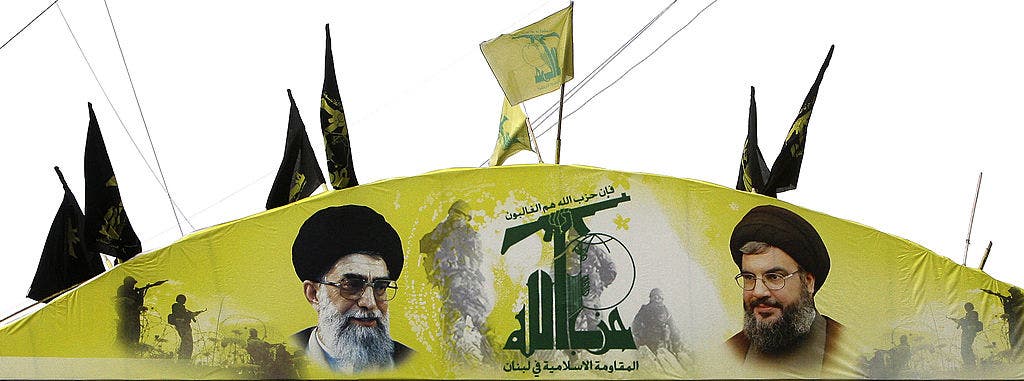
Iran vowed on Tuesday to back the terrorist organization Hezbollah “by all means” against Israel if Jerusalem launches an offensive in neighboring Lebanon.
Kamal Kharrazi, Iranian foreign minister and top advisor to Iran’s supreme leader, issued a stark warning that a conflict in Lebanon could result in a regional war involving all Arab nations.
“All Lebanese people, Arab countries and members of the Axis of Resistance will support Lebanon against Israel,” he said in an interview with the Financial Times. “There would be a chance of expansion of the war to the whole region, in which all countries including Iran would become engaged.”
“In that situation, we would have no choice, but to support Hezbollah by all means,” he added.
A split screen showing Hamas terrorists, left, and Hezbollah Radwan forces, right. (Chris McGrath/Getty Images | AP/Hassan Ammar)
US CITIZENS SUE STATE SPONSORS OF TERRORISM, IRAN, SYRIA AND NORTH KOREA, FOR AIDING HAMAS MASS MURDER
Kharrazi noted that “the expansion of war is not in the interest of anyone – not Iran or the U.S.,” but his comments came just one day after a top Iranian commander said he was itching for the opportunity to levy more strikes against Israel.
Speaking to the families of Palestinians killed during the fight in the Gaza Strip on Monday, Brigadier General of the Islamic Revolutionary Guards Corps (IRGC) Aerospace Force Amir Ali Hajizadeh said he is “hopeful” another strike will be carried out against Jerusalem following the first attack in April.
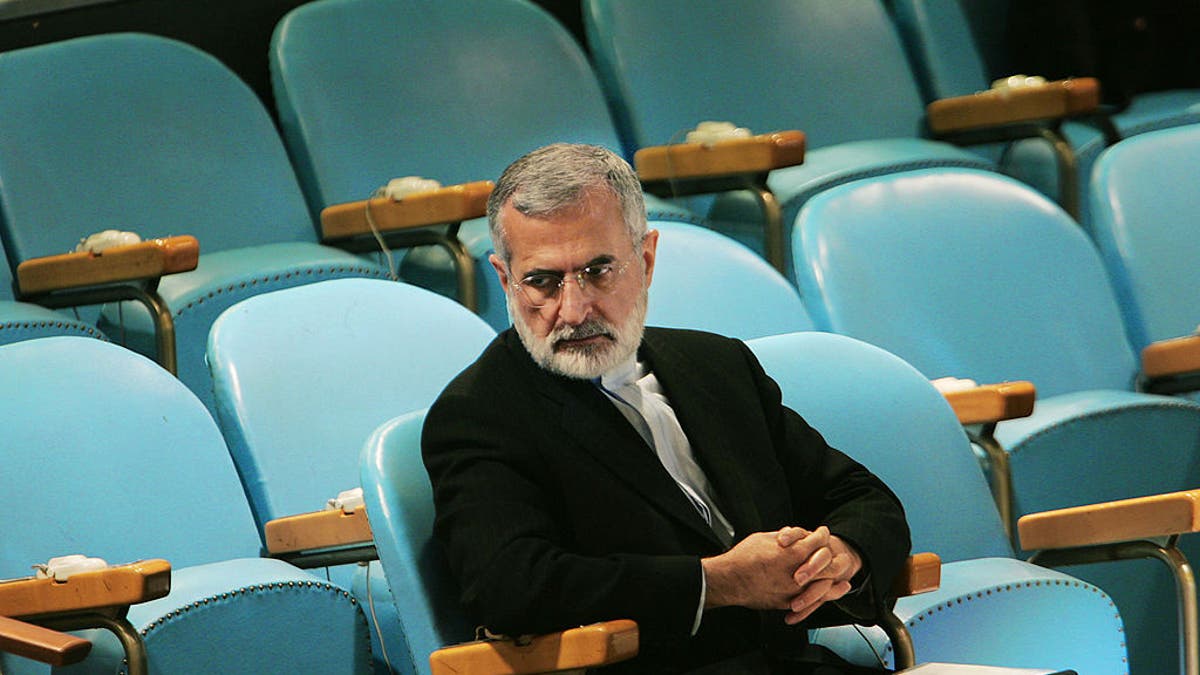
Kamal Kharrazi, then foreign minister of Iran, waits to speak at the United Nations May 3, 2005 in New York City. (Photo by Chris Hondros/Getty Images)
“We are hopeful of the arrival of the opportunity for [conducting] Operation True Promise 2,” Hajizadeh said, according to Iranian-owned media outlet Mehr News Agency.
The comments were in reference to the more than 300 drones, ballistic missiles and cruise missiles Tehran reportedly fired at Israel on April 14, the majority of which were stopped by Israeli and U.S. forces.

Commander of Aerospace Force of the Islamic Revolutionary Guard Corps Amir Ali Hajizadeh gives a speech as Iran presents its first hypersonic ballistic missile “Fattah” (Conqueror) at an event in Tehran, Iran, on June 6, 2023. (Sepah News / Handout/Anadolu Agency via Getty Images)
The strike marked the first time Iran directly attacked Israel despite years of proxy fighting and apparent covert hits on top military targets.
ISRAEL DESTROYS ISLAMIC JIHAD’S LARGEST ROCKET PRODUCTION SITE IN GAZA
Hajizadeh, who has played a critical role in developing Iran’s drone and missile program, did not say what the next attack against Jerusalem would look like but promised to continue supporting terrorists in the ongoing war against Israel.
“As it is obvious from the weapons of our dear ones in Palestine, Lebanon and elsewhere, it has now become clear that they are in fact being helped and supplied by Iran,” he said, according to Iran’s Tasnim News Agency.

An arch glorifying Hezbollah and baring pictures of its chief Hassan Nasrallah, right, and Iran’s spiritual leader Ali Khamenei decorates a street of Beirut’s southern suburb on Jan. 16, 2011. ( Photo: ANWAR AMRO/AFP via Getty Images)
Tehran’s involvement in Jerusalem’s fight in the Gaza Strip has increasingly drawn international concern. Iran expert and senior fellow with The Foundation for Defense of Democracies Behnam Ben Taleblu said the strike in April “means that never again can the threat of a direct attack by the Islamic Republic against Israel be ignored.”
“That large a volley of cruise missiles, ballistic missiles and drones was designed to kill just as much as it was designed to send a message,” he added.
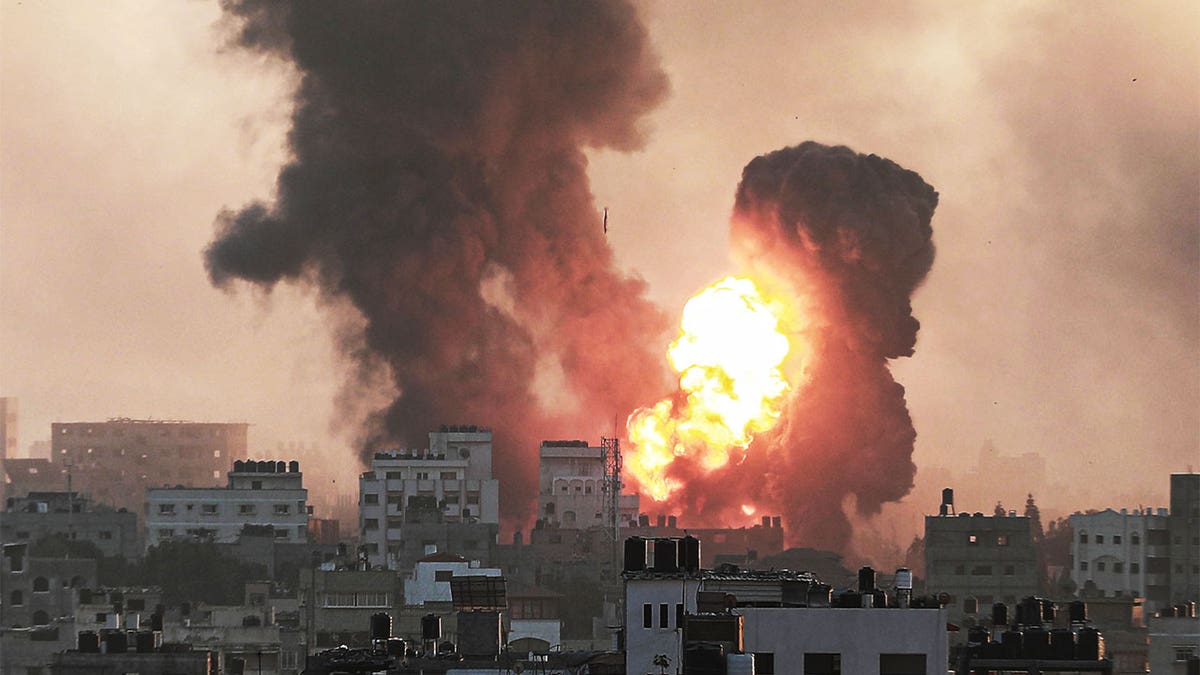
Smoke and flames rise following an Israeli airstrike in the Gaza Strip, Gaza, on Nov. 2, 2023. (Photo by Ali Jadallah/Anadolu via Getty Images)
The Hajizadeh’s comments came just days after Iran’s mission to the United Nations also threatened an “obliterating war” against Israel if it launched an offensive in Lebanon against Hezbollah – a scenario Taleblu said Iran is using to exacerbate a “cycle of violence against Israel.”
“We are in the incubation phase of greater militia coordination. As Hamas fights Israel, Hezbollah is drawing resources from the south toward the north, while proxies in Yemen and Iraq are trying to synchronize their fire against the Jewish state,” he warned. “In the interim, Tehran is benefiting from the chaos.”
World
Rule of law protests greet new Dutch government at swearing-in

A group of protesters watched from behind the fences at Huis ten Bosch Palace as a new Dutch cabinet was sworn in.
Around 20 Amnesty International activists participated in a demonstration in The Hague out of concern for the rule of law.
Dutch democracy is in danger, those gathered Tuesday morning said as the new Dutch government was being sworn in.
“Parties will soon enter the government, one of which does not even have members [PVV],” said one demonstrator, “Parties that sow hatred and exclude large groups of people in society.”
“We shouldn’t normalise that. It is not normal. We are speaking out, and we will continue to speak out.”
The group had awaited new Dutch Prime Minister Dick Schoof, along with incoming ministers and state secretaries, at the back entrance of the palace. However, the politicians arrived at the front entrance instead, so the group missed them.
The protestors failed to interrupt the government’s family photo, which started ten minutes earlier than planned, meaning they arrived just too late.
Schoof, the former head of the Dutch intelligence agency and counterterrorism office, signed an official royal decree on Tuesday to uphold his duties as the country’s prime minister.
The 67-year-old was installed alongside 15 other ministers who make up the country’s right-leaning coalition.
The four parties in the coalition are Geert Wilders’ Party for Freedom (PVV), outgoing Prime Minister Mark Rutte’s centre-right People’s Party for Freedom and Democracy, the populist Farmer Citizen Movement and the centrist New Social Contract party.
Wilders’ far-right anti-immigration PVV party had won the largest share of seats in the Netherlands’ elections last November. However, it took Wilders 223 days to find enough allies to form a government.
-

 News1 week ago
News1 week agoA Florida family is suing NASA after a piece of space debris crashed through their home
-
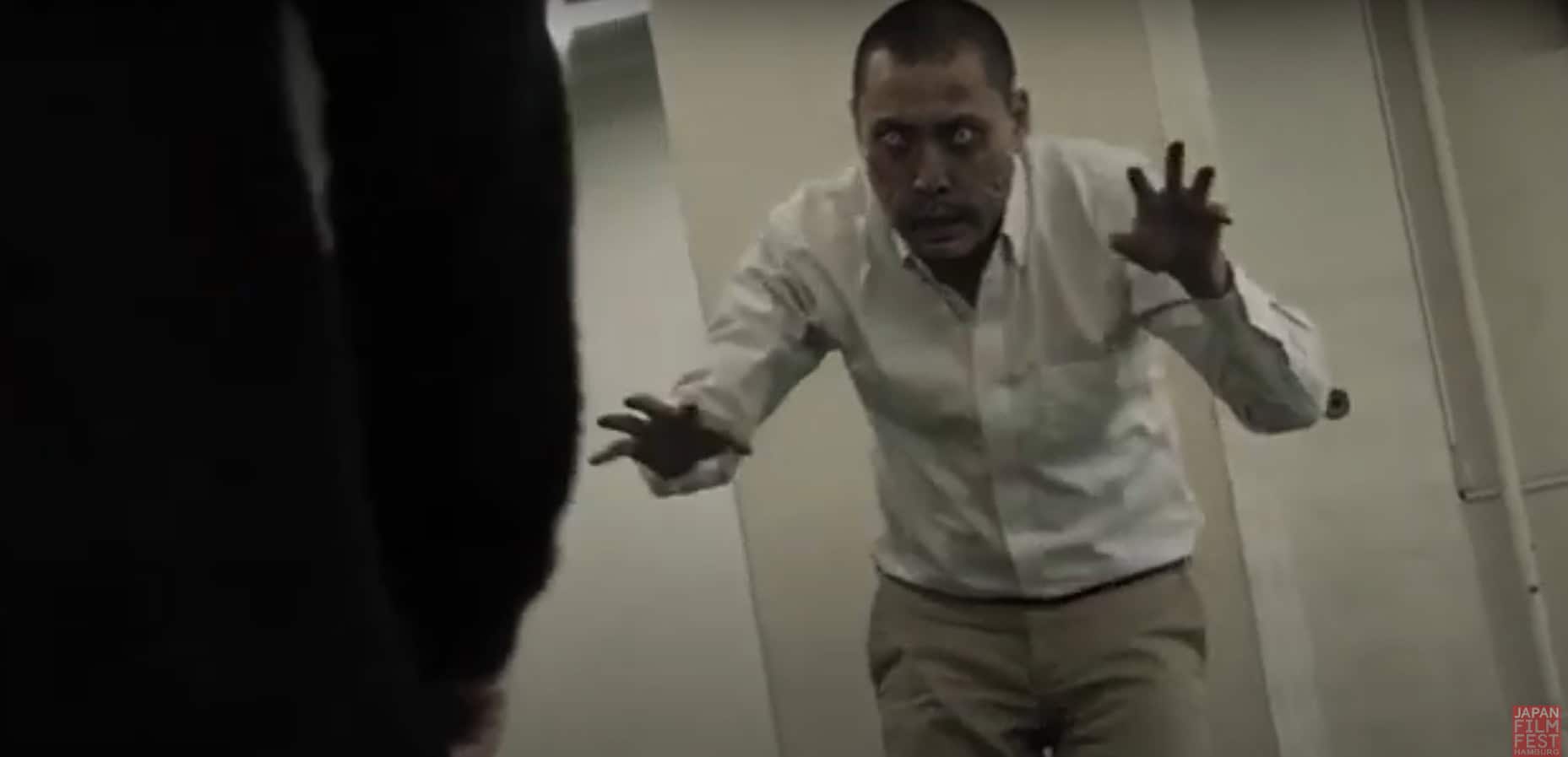
 Movie Reviews1 week ago
Movie Reviews1 week agoFilm Review: Everyday of the Dead (2023) by Yuyuma Naoki
-

 Politics1 week ago
Politics1 week agoBiden official says past social media posts don’t reflect ‘current views,’ vows to support admin ‘agenda’
-

 World1 week ago
World1 week agoNew Caledonia independence activists sent to France for detention
-

 World1 week ago
World1 week agoIsrael accepts bilateral meeting with EU, but with conditions
-

 World1 week ago
World1 week agoNetanyahu says war will continue even if ceasefire deal agreed with Hamas
-
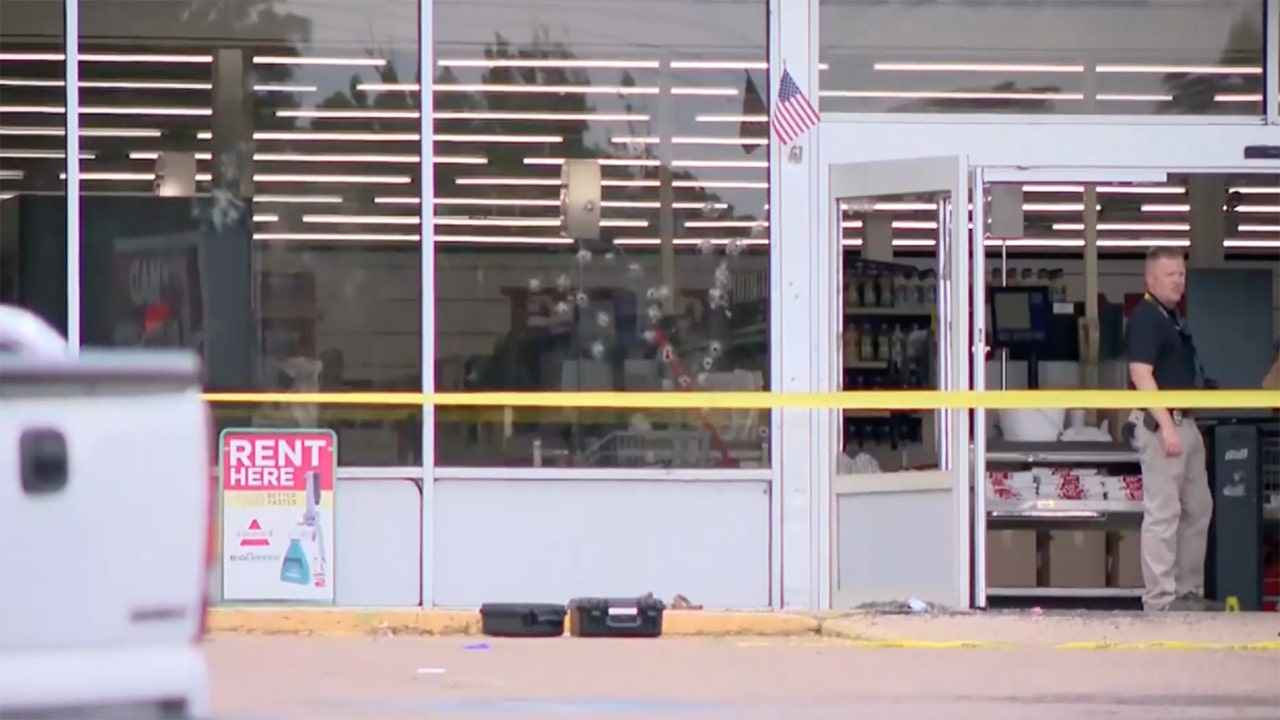
 News1 week ago
News1 week agoArkansas police confirm 4th victim died in grocery store shooting
-
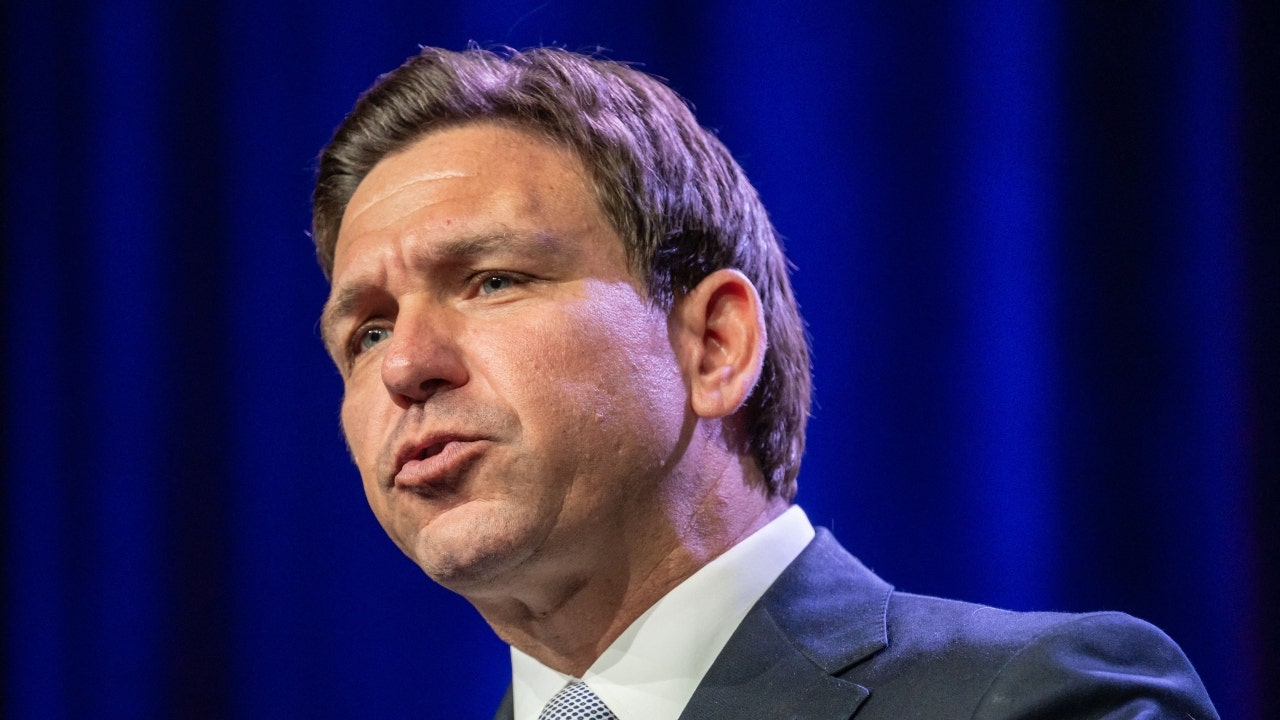
 Politics1 week ago
Politics1 week agoDeSantis signs bill allowing residents to kill bears, vetoes bill that fines slow left lane drivers
















